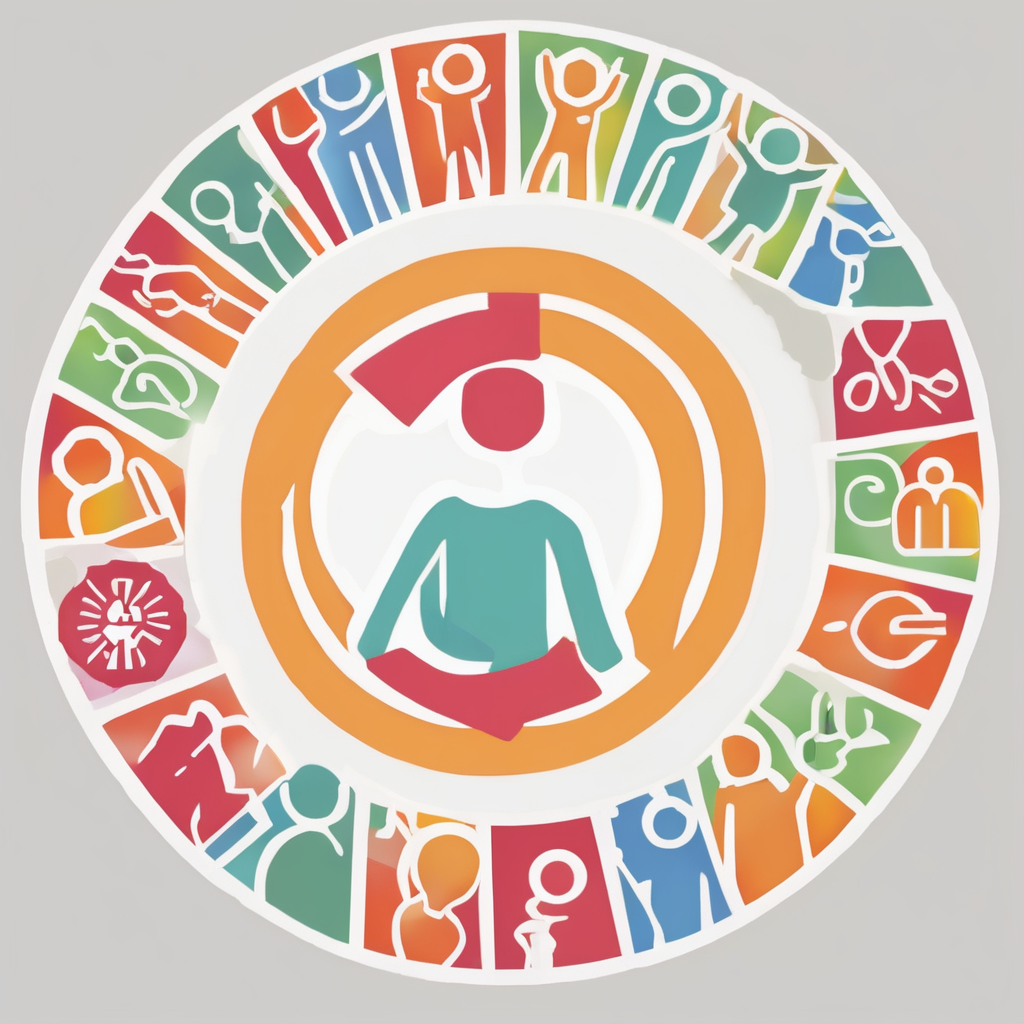Finding Hope: Your Path to Recovery with Professional Eating Disorder Counsellors in London
Recovery from eating disorders is possible with the right professional support. According to Beat Eating Disorders, over 1.25 million people in the UK are affected by eating disorders in 2024, yet many still struggle to access specialized care. Are you ready to take that crucial first step towards healing? London offers exceptional therapeutic resources, and when you’re prepared to seek london eating disorder counsellor support, you’ll find compassionate professionals dedicated to guiding your recovery journey.
Understanding What Makes a Qualified Eating Disorder Specialist
When seeking support for eating disorders, finding a truly qualified specialist makes all the difference in your recovery journey. The most effective therapists combine extensive clinical training with specialized certifications in eating disorder treatment, ensuring they understand the complex psychological and physical aspects of these conditions.
Also read : How Does Mental Health Support Impact Workplace Productivity in the UK?
A qualified eating disorder specialist typically holds advanced degrees in psychology, counselling, or related mental health fields, accompanied by specific training in evidence-based approaches like Cognitive Behavioral Therapy (CBT) or Dialectical Behavior Therapy (DBT). Many also pursue certifications from recognized bodies such as the British Association for Counselling and Psychotherapy (BACP) or specialized eating disorder organizations.
Experience matters tremendously in this field. The most effective practitioners have dedicated years to working specifically with eating disorders, rather than treating them as a secondary specialty. They understand the nuances of different conditions, from anorexia and bulimia to binge eating disorder, and can adapt their approach to each individual’s unique circumstances.
In the same genre : How Can the UK’s Healthcare System Be More Accessible to Remote Communities?
London’s mental health landscape offers access to some of the UK’s most experienced eating disorder specialists, many of whom combine private practice with work in leading treatment centers, bringing comprehensive expertise to their compassionate, hope-focused approach to recovery.
Key Criteria to Consider When Choosing Your Therapist
Choosing the right eating disorder therapist is a crucial step in your recovery journey. The therapeutic relationship you build will significantly impact your progress, so taking time to evaluate potential counsellors is essential.
Several key factors should guide your decision-making process:
- Specialised experience – Ensure your therapist has specific training and experience treating your particular eating disorder, whether anorexia, bulimia, or binge eating disorder
- Therapeutic approach – Look for evidence-based treatments like Cognitive Behavioural Therapy (CBT) or Family-Based Therapy, depending on your needs
- Professional credentials – Verify their qualifications with recognised bodies like BACP or UKCP
- Practical considerations – Consider location, session availability, fees, and whether they accept insurance
- Personal compatibility – Trust your instincts about feeling comfortable and understood during initial consultations
Don’t hesitate to ask potential therapists about their experience with cases similar to yours. A qualified professional will welcome these questions and provide clear, reassuring answers about their approach to treatment.
Treatment Approaches Available in London’s Mental Health Services
London’s mental health landscape offers a diverse range of therapeutic approaches, each designed to meet the unique needs of individuals struggling with eating disorders and related challenges. The capital’s healthcare professionals recognize that recovery isn’t a one-size-fits-all journey, which is why multiple evidence-based treatments are readily available throughout the city. Cognitive Behavioural Therapy (CBT) remains one of the most widely utilized approaches, helping individuals identify and challenge the thought patterns that fuel disordered eating behaviors. This structured method has shown remarkable success rates, particularly when combined with nutritional counseling and regular monitoring by qualified professionals.
Dialectical Behaviour Therapy (DBT) offers another powerful avenue for those dealing with emotional regulation difficulties alongside their eating disorder. This approach teaches practical skills for managing intense emotions, improving relationships, and developing healthier coping mechanisms. Many London-based practitioners have found DBT particularly effective for individuals with complex presentations.
Family therapy approaches recognize that healing often extends beyond the individual, involving loved ones in the recovery process. These sessions help families understand eating disorders better while building supportive environments that encourage long-term recovery. The collaborative nature of this treatment creates a network of understanding and hope that strengthens the entire healing journey.
NHS vs Private Care: Understanding Your Options
When seeking eating disorder support in London, you face a crucial decision between NHS services and private care. The NHS provides comprehensive eating disorder treatment through specialized units like the Maudsley Hospital, but waiting times can extend from several weeks to months depending on severity and location.
Private eating disorder counselling offers immediate access to qualified therapists, with appointments typically available within days. While costs range from £80-150 per session, many find the investment worthwhile for faster intervention during critical periods. Private practitioners often provide more flexible scheduling and longer session durations tailored to individual needs.
The NHS excels in providing multidisciplinary team approaches, combining psychiatric, medical, and nutritional support at no direct cost. Their evidence-based treatments include family therapy, cognitive behavioral therapy, and specialized eating disorder units for severe cases. However, geographic variations across London boroughs can significantly impact service availability and quality.
Both pathways offer genuine hope for recovery. Many individuals successfully combine approaches, starting with private counselling for immediate support while accessing NHS services for long-term care. The key lies in understanding your specific circumstances, urgency of need, and available resources to make the most appropriate choice for your recovery journey.
The Journey to Recovery: What to Expect from Professional Support
Recovery from an eating disorder isn’t a linear process, but understanding what lies ahead can provide comfort and clarity. Your therapeutic journey begins with an initial assessment, where your counsellor creates a comprehensive understanding of your unique situation, challenges, and strengths. During the early sessions, you’ll establish a therapeutic alliance built on trust and understanding. This foundation allows for honest exploration of underlying patterns, triggers, and emotions. Many clients find that simply being heard without judgment begins to shift their relationship with food and self-image.
As therapy progresses, you’ll develop practical coping strategies and challenge distorted thinking patterns. Progress might feel gradual at first, but small victories accumulate. Perhaps you’ll notice reduced anxiety around meals, improved body awareness, or stronger emotional regulation skills. The ongoing support phase focuses on maintaining progress and preventing relapse. Regular check-ins provide stability and reassurance, while booster sessions address new challenges as they arise. Recovery is possible, and professional support ensures you’re never navigating this journey alone.
Your Questions Answered: Eating Disorder Support in London

Finding the right support for eating disorders in London can feel overwhelming. These frequently asked questions address the most common concerns about accessing professional help in the capital.
How do I find a qualified eating disorder counsellor in London?
Search professional directories like BACP or UKCP, check credentials and specialisations. Look for therapists with specific eating disorder training and positive client reviews in your area.
What should I look for when choosing an eating disorder therapist in London?
Prioritise therapists with eating disorder specialisation, relevant qualifications, and approaches that resonate with you. Consider location, availability, and whether they offer initial consultations to assess fit.
How much does eating disorder counselling cost in London?
Private sessions typically range from £80-£150 per hour. Some therapists offer sliding scale fees based on income. Insurance may cover treatment costs depending on your policy.
Are there NHS eating disorder services available in London?
Yes, NHS provides eating disorder services through community teams and specialist units. Referral from your GP is usually required, though waiting times can vary significantly across boroughs.
What types of eating disorder treatments are available in London?
London offers CBT, DBT, family therapy, and nutritional counselling. Many therapists provide integrated approaches combining multiple therapeutic methods tailored to individual recovery needs.


